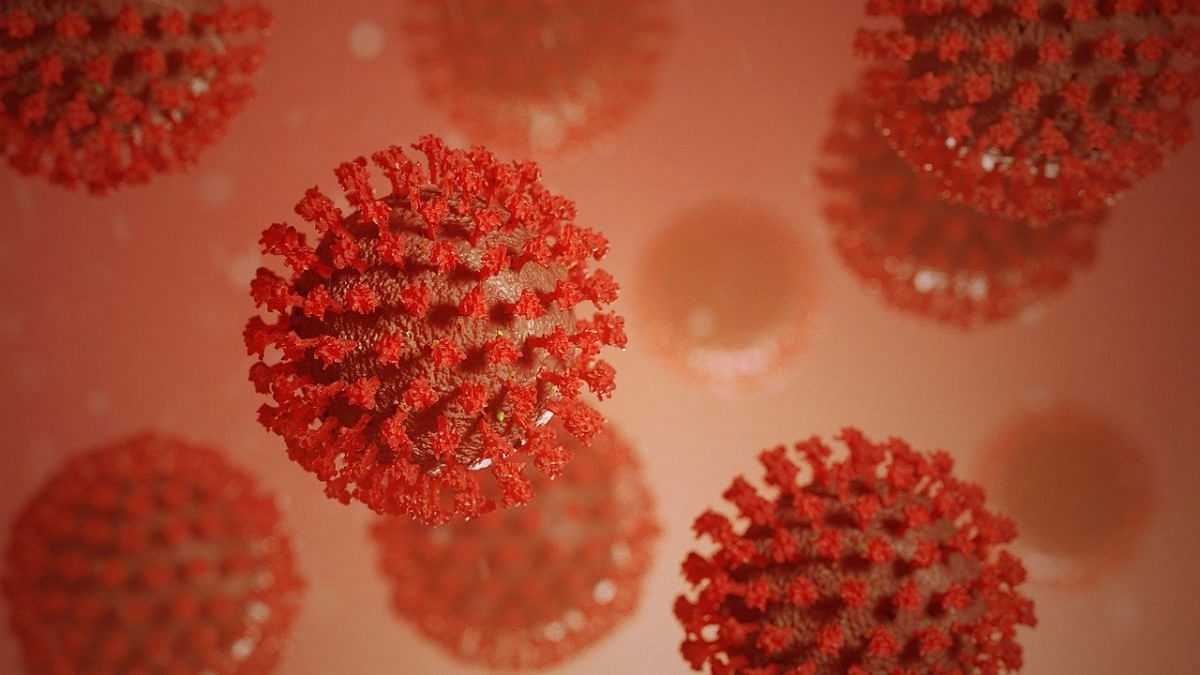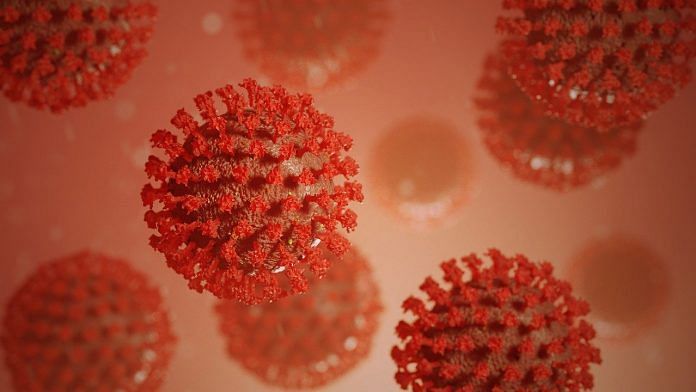

Text size:
New Delhi: At least 19 genetic variants of SARS-CoV-2 in India have evolved to evade the neutralizing antibodies that the human immune system creates against Covid-19 infection, and one of these variants has already caused a confirmed case of reinfection in the country. a study has found.
A team from the CSIR Institute for Genomics and Integrative Biology (CSIR-IGIB), New Delhi; Academy of Scientific and Innovative Research (AcSIR), CSIR-HRDC, Uttar Pradesh and Kurnool Medical College in Andhra Pradesh identified 120 ‘immune escape variants’ in SARS-CoV-2 from around the world.
An immune escape variant of SARS-CoV-2 is a mutation in the virus that allows it to evade the immune system.
“Our analysis suggests that a number of genetic variants associated with immune escape have emerged in global populations,” the researchers wrote in the study that has not yet been peer-reviewed.
The team collected data on 2,65,079 SARS-CoV-2 genome sequences from a global database, in addition to sequencing more than 1,154 genomes in their laboratories.
Of the 19 immune escape variants found in Indian genomes, one in particular, known as the S: N440K variant, was found to be found in 2.1 percent of gene sequences in India.
This variant has a high prevalence in the state of Andhra Pradesh, where 33.8 percent of the 272 sequenced genomes had this variant.

The team’s analysis suggests that the variant evolved within India in recent months.
Read also: That hot coffee smell can help you in your daily DIY smell checks for Covid-19
What does this mean for reinfections
The S: N440K variant caused a case of reinfection in a 28-year-old health worker in northern India. At the time the reinfection was reported, the team had suggested that the variant possibly confers resistance to neutralizing antibodies.
When asked if the new variants can cause an increase in Covid-19 reinfections, Vinod Scaria, a researcher at CSIR-IGIB and one of the study authors, told ThePrint: “Our body generates a series of antibodies against a virus, so a genetic variant may not completely evade all antibodies. The effect of the variant depends on the proteins of the virus affected by the mutation and also on how many mutations there are in a single variant. ”
In addition to the 19 identified in India, the team found 24 variants associated with immune escape present in nearly 70 percent of the viruses sequenced in Australia.
The analysis also suggests that N501Y, a mutation in the UK strain Covid-19 that is reported to spread faster, was present in a total of 290 genomes, including those from Australia, South Africa, the United States, Denmark, and Brazil.
India has banned flights from the UK to prevent this SARS-CoV-2 from entering the country, but the document suggests that people flying from South Africa, the US, Denmark and Brazil should also be monitored to avoid a second. wave Covid-19 in the country.
While N501Y (the UK variant) has evidence of immune escape, the effect is not as strong as the South African lineage, which has additional variants (E484K + K417N) associated with immune escape, in addition to N501Y, Scaria explained.
Read also: Covid protection with placebo too? Bharat Biotech speech for volunteers raises concerns
Viral mutations expected
According to the researchers, viral mutations are normal for RNA viruses. When a virus multiplies within the cells of a living organism, it creates copies of the RNA. However, the process you use to make these copies is not perfect and often introduces small errors in the base sequence. These errors are called genetic mutations.
The genetic material of the coronavirus is ribonucleic acid (RNA) strands. Each virus has about 26,000 to 32,000 bases or “letters” of RNA in its length.
These letters, A, C, U and G, represent adenine, cytosine, uracil and guanine, biological molecules that contain nitrogen that are the fundamental units of the genetic code. How A, C, U, and G are organized in the genetic code determines which proteins the body expresses.
Unraveling the genetic code, letter by letter, is known as genetic sequencing.
“SARS-CoV-2 has a constant rate of mutations and therefore the virus is expected to accumulate mutations over time, ”said Scaria.
Implications for treatments and vaccines
Scaria said that, at the moment, there is no evidence to suggest that these variants may pose a special challenge for Covid-19 treatments and therapies, but added that they need to be analyzed in detail.
Regarding vaccines, Scaria noted that in the past, such escape variants have been identified for other commonly used vaccines, for example, hepatitis B.
While no evidence is yet available for SARS-CoV-2, one should keep an eye out for such genetic variants as vaccines become common, Scaria said.
“Emphasis should be placed on also sequencing all SARS-CoV-2 cases in vaccine trials, to understand what variants might emerge and possibly continuous genomic surveillance could identify such events early,” Scaria said.
Read also: Did you think coronavirus is our 2020 news maker? No, it’s mRNA made by science, your nemesis
Subscribe to our channels on YouTube and Telegram
Why the media is in crisis and how you can fix it
India needs free, fair, unscripted and more questioning journalism as it faces multiple crises.
But the media is in its own crisis. There have been brutal layoffs and pay cuts. The best of journalism is shrinking, giving in to the raw spectacle of prime-time.
ThePrint has the best young journalists, columnists and editors working for it. To sustain journalism of this quality, you need smart, thinking people like you to pay for it. Whether you live in India or abroad, you can do it here.
Support our journalism